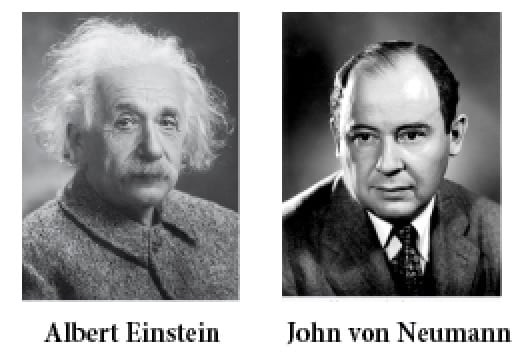
Philosopher Arthur Schopenhauer best captured the essence of genius in his famous quote: Talent hits a target no one else can hit; genius hits a target no one else can see. Newton, Einstein, John von Neumann and Tesla are considered geniuses because they combined high intelligence with creativity and insight to hit targets that no one else saw. Newton developed the mathematics of rocket science while most humans thought that the sun and the planets orbited the earth. Einstein asserted that time is not absolute and reconceptualized Newton’s gravity as a “curvature” of space. John von Neumann created game theory and was the father of the programmable computer. Tesla recognized the superiority of alternating current over direct current, and enabled the harnessing electrical power. All of these were targets that none of the other highly intelligent people could see.
Certainly, a high IQ is a necessary attribute for genius in mathematics, physics, computer science and most of the STEM subjects. However, we also refer to people in other domains as having “genius”. In the arts, high intelligence may be less important than a special creativity, skill or knowledge. Shakespeare’s insights and intelligence were part of his genius, but his knowledge of human nature and his remarkable ability to express these insights with exceptional cogency qualified him as a literary genius. Similarly Mozart’s genius derived in large part from an innate instinct for musical harmony.
When we scan the spectrum of human achievement for commonalities among those who are regarded as “geniuses”, we observe a common characteristic: passion and unrelenting effort. Nikola Tesla was passionate about exploring the potential of electromagnetic energy, living in isolation so that he could devote himself to discovery. Van Gogh and Picasso were immersed in exploring new art forms. A catalog of Picasso’s works lists more than 16,000 of his paintings and drawings–a testimonial to his unrelenting commitment to his passion.
In his book Entrepreneurial Genius: The Power of Passion, psychologist Gene Landrum provides brief biographies of some of the greatest entrepreneurial geniuses from Henry Ford to Jeff Bezos. Comparing and contrasting their personalities, he identifies their single most commonly shared personality trait–a passionate obsession with achieving their vision. It is this obsession that enables them to apply their minds relentlessly to their goals, transforming their vision into a reality that pushes back the boundaries of what was believed possible.
